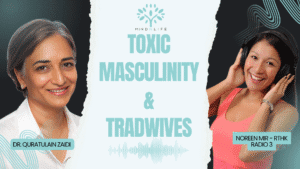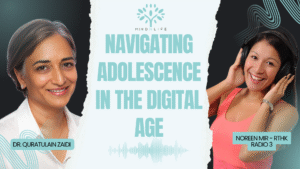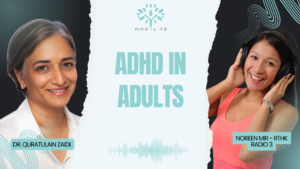In Hong Kong’s fast paced life it’s not a surprise that I see 3/5 people who report high levels of stress, so what is stress? Stress is a body’s normal physiological response to an external event. For the cycle of stress to begin, there must be a stressor, like a work deadline or a scary medical test. Stress is defined as a reaction to environmental changes or forces that exceed the individual’s resources.
Good and Toxic Stress
In prehistoric times, stress was a natural response to a threat, like hearing a predator in the bushes. Although we don’t have to run to save our lives from a sabertoothed tiger today, the stress response also known as fight flight freeze response still prompts a behavioural response, firing up our limbic system and releasing adrenaline and cortisol, which helps activate the brain and body to deal with the threat, e.g. crossing the road safely as the bus is coming towards you.
Is all stress bad? No, there is good stress and toxic stress
Good stress is a natural response that prepares us for action, boosting energy and focus to tackle challenges. It feels like a rapid heartbeat, clammy palms, or shallow breathing and often comes with the thought, “This is tough, but I can do it.” Positive stress works best when the task feels doable and the stress is temporary. It drives action, leading to satisfaction, and keeps you focused, energised, and motivated. A healthy level of stress sharpens your mind and body, helping you perform at your best.
However, it becomes toxic when a situation no longer feels doable and isn’t temporary. Toxic, long-lasting stress has unfortunately been normalised in our times, and this is not okay. Living with sleep deprivation, eating at your desk or skipping meals, tossing and turning at night, and having stress-induced headaches for years should not be accepted as just the way things are. When stress becomes toxic, we enter a state of distress, signalling an unsustainable situation. The cost is usually to our physical, mental, and emotional health.
Prolonged exposure to distress impacts our emotions, leading to a combination of anger or irritability, anxiety, and depression. Physically, it affects almost every biological system in our body. Autoimmune diseases have been on the rise in the last 20 years as well as gut issues, muscular pain, and fertility problems. Recent studies even suggest that stress can feed cancer cells in our bodies. This aligns with my observations that more young, healthy individuals are being diagnosed with terminal cancer in their early 40s. While early diagnosis plays a role, stress is definitely a significant factor in the rise of this and many chronic diseases.
The mind and body are connected—they work together, not in isolation.
Managing our stress response requires us to implement strategies, recognising the strong connection between our minds and bodies. The body sends signals to the brain, and vice versa. Acknowledging your body’s stress response signals is the first step and then to close the stress loop the following are the most helpful that people have found in my practice.
- Doing something daily to close the stress loop, such as exercising, practicing mindfulness, walking, or reading. Exercise is a way for your body to recover from the increase of adrenaline and cortisol.
- Setting a timer for the middle of each day to get out of your chair, stretch, and get your body moving.
- Putting away your phone and allowing yourself to just be bored.
- Using all of your senses to experience life as it happens, not rushing through, and preserving the sense of wonder. Living in the now rather than focusing on the future or dwelling on the past.
- Learning to breathe deeply and steadily, to slow our heart rate and relax our muscles during stressful situations.
- Remind yourself of what you can and can’t control about the situation and then focus your energy on what you can control and accept what you can’t. My patients are definitely familiar with the can and can’t strategy.
- Don’t compare your stress with anyone else’s stress, everyone is unique and people respond differently to stressful situations.
- Remember stress is a biological response that is a normal part of our lives
- Pay attention to your thinking patterns and what you say to yourself. It’s also important to work on what we think during stressful moments. Remind ourselves that our thoughts are not our reality.
The Silent Epidemic
In my opinion, stress is the silent epidemic of our time, especially since technological advances like smartphones have blurred the lines between work and personal time, promoting constant availability. We need to be more cognisant of this and take action. This may seem totally undoable for so many, but I would like you to give it a go. Try putting your phones away every day after work and be present in the moment, allow yourself to detach from the cyber world and your cyber lives, I promise it will make a positive impact.
To find out more how therapy can help you achieve your full potential and improve your mental health, book an appointment with us today.
This article was originally published on Little Steps Asia – Read the full article here.







